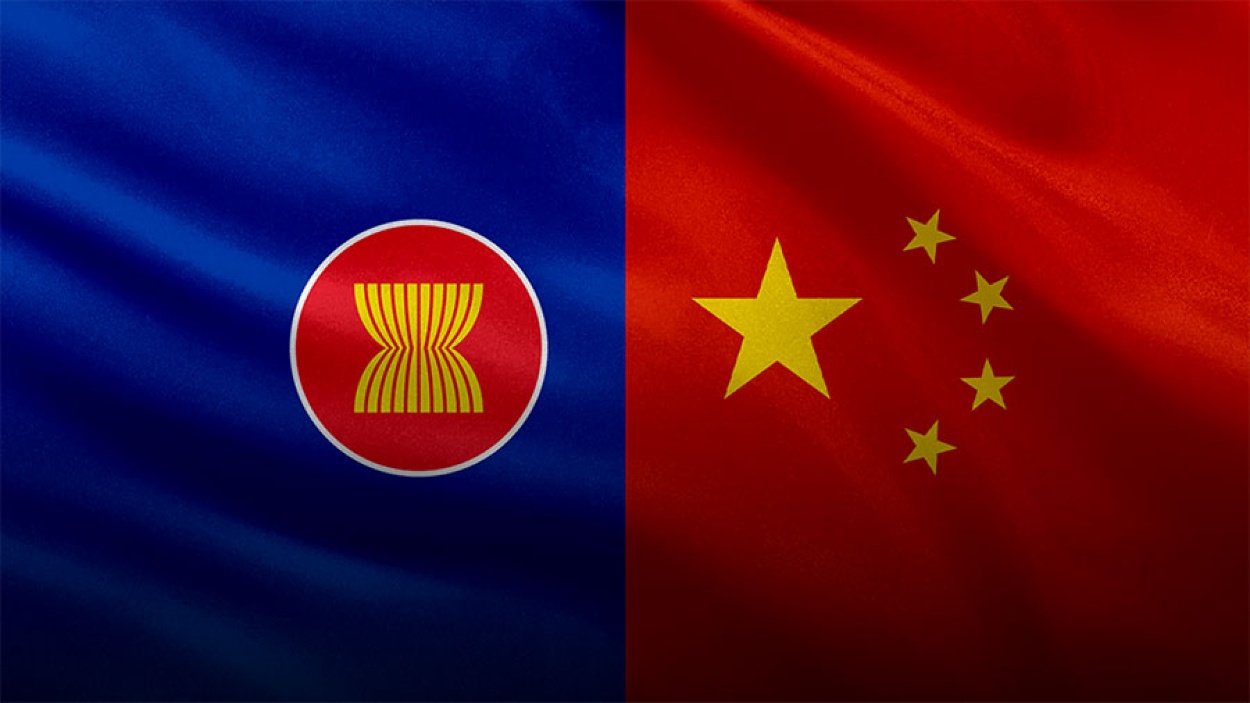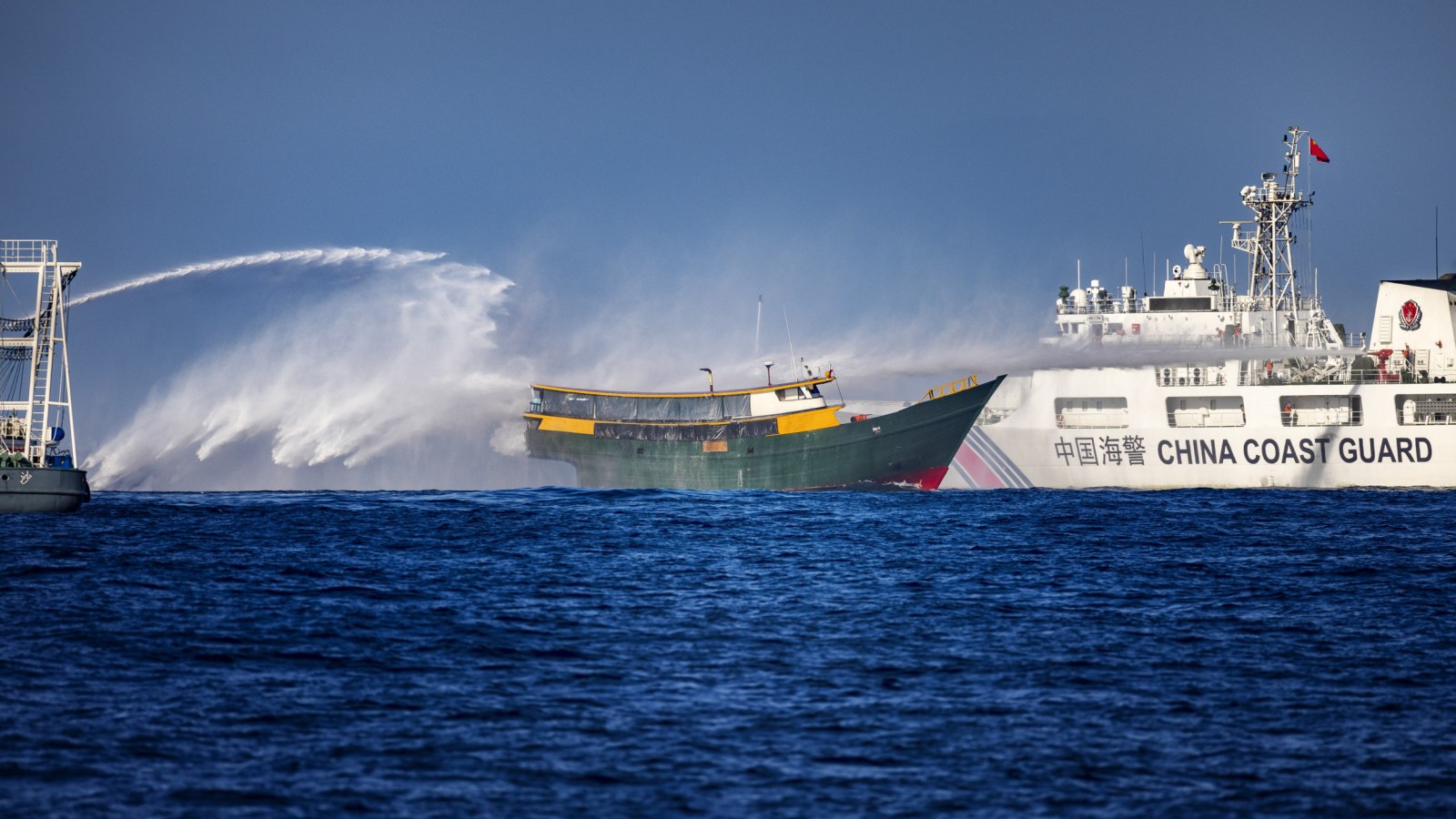The Philippines is fighting a tough battle against Chinese Coast Guard intrusions into its own EEZ. During ASEAN meetings, the Chinese relented and reduced the intensity of the restrictions on Filipino ships without withdrawing from the area.
Thus, during the recent ASEAN Foreign Ministers Meeting accompanied by meetings of foreign ministers at the ARF, the EAS, and the China-ASEAN meeting, it seemed like an order of a ceasefire by the Chinese against Filipino efforts to replenish their small contingent stranded on a grounded ship at the Second Thomas Shoal.
No sooner are these meetings over that Chinese efforts to restrict the movement of Filipino ships and assault them with non-lethal weapons recur.
AfriPrime App link: FREE to download...
https://www.amazon.com/Africircle-AfriPrime/dp/B0D2M3F2JT
Such Chinese aggression and ASEAN’s relative silence make the Philippines feel isolated. Consequently, the Philippines is seeking ASEAN Plus solutions by closely aligning itself with the Quad countries, the US, Japan, Australia, and India, though not as a Quad but individually so.
While the Chinese seem to continue to engage ASEAN on developing a binding code of conduct (COC) in the South China Sea, their actions in the SCS clearly appear to be that they own the South China Sea, which is covered by their new laws under which the Coast Guard is empowered to deal with ‘intruders’ into their perceived area.
The rest of ASEAN seems to be waiting for the code of conduct (COC) to come into play, hoping that it will restrict Chinese activity since it will be a binding agreement on all signatories. This has been going on for two decades.
When negotiations began in 2002, ASEAN and China had a Declaration on the Conduct of Parties in the SCS. That declaration was meant to be a precursor to the COC but has remained the only declaration to date.
A recent commentary quotes Japanese Professor Tsutomu Kikuchi of Aoyama Gakuin University as saying, ‘the Asean-China talks on the code of conduct have become a forum for mutual complacency, where both sides can pretend that progress is possible.’ Sharon Sheah of ISEAS adds that the negotiations’ delay was caused by disagreements over the COC’s enforceability, geographical scope, and activities it would proscribe.
Before the pandemic, ASEAN achieved some understanding with China on the preamble to the COC. Up to 2017, China did not wish to discuss this with ASEAN because they felt that problems in the South China Sea were with individual ASEAN countries and needed to be settled bilaterally.
Vietnam and the Philippines were in the front zone, while Brunei and Malaysia adopted a quieter, non-confrontational view. Indonesia, which did not have a territorial dispute under the 9-dash line, found itself the victim of Chinese intrusions into its EEZ off the Natuna Sea, thus bringing it into the matrix as well.
Once the Chinese got most of what they wanted in the SCS and passed their domestic legislation, they realized that the battle was won. They now decided to engage ASEAN as a confidence-building measure on the code of conduct (COC).
AfriPrime App link: FREE to download...
https://www.amazon.com/Africircle-AfriPrime/dp/B0D2M3F2JT

For nearly three years, negotiators have met with a hiatus during the pandemic because ASEAN negotiators felt that it was more important to deal face-to-face than virtually. At this time, China adopted the position that a COC would be concluded on their terms, if at all.
During this period, how much did ASEAN collaborate among itself to clarify its own position? This remains unclear. Now, there are problematic areas in China’s negotiating style.
First, China believes that UNCLOS (United Nations Convention on the Law of the Sea), to which it is a signatory, should not apply to the SCS and, therefore, should not be part of the COC. If China agrees to honor UNCLOS, then it has ramifications on the arbitral award the Philippines won against Chinese claims on the nine-dash line in 2016. The nine-dash line would have no standing under UNCLOS. Hence, China wants to evade UNCLOS in its dealings with ASEAN.
Secondly, China wishes to keep the SCS as its own internal sea, bounded by some ASEAN countries that must follow its rules rather than their own. According to Chinese understanding, the kind of standoff that the Philippines is undertaking should not recur because this is not according to Chinese policy or their understanding of the COC.
Finally, the Chinese believe that the code of conduct (COC) should restrict the role of non-ASEAN powers in the SCS. The Quad partners, in particular, must be restrained and not allowed to function as if in international waters. If the SCS is recognized by ASEAN as a Chinese lake, they will also cede rights to seabed resources and could exploit them only with China.
AfriPrime App link: FREE to download...
https://www.amazon.com/Africircle-AfriPrime/dp/B0D2M3F2JT

Chinese interlocutors are normally consistent, but ASEAN has difficulties within itself. Some ASEAN countries, like Myanmar, Cambodia, and Laos, have little interest in the SCS.
Myanmar has been the ASEAN country coordinator for China for the last three years. Laos is the current ASEAN chair. M Malaysia will take over for the next three years as the country coordinator for China and will chair ASEAN in 2025. Will it be able to take the COC forward in positive terms? It is setting high expectations for itself.
Besides the disinterest of some ASEAN countries, the other countries that are impacted by Chinese intrusions also react differently and do not want to challenge China to avoid a breach in their economic cooperation.
Earlier, when the Philippines challenged China, they suffered by losing their right to export bananas and to receive Chinese tourists. Now, even Vietnam, the earlier frontman in this effort, is unwilling to take such risks. Since 2020, China has become the largest trading partner for ASEAN and most of its member states.
The problem now lies with the ASEAN. They need to better coordinate their responses to the Chinese diplomatic jugglery. For years, they have included references to the code of conduct (COC) along with the UNCLOS in their own statements, which China does not recognize during negotiations.
In September 2023, ASEAN Leaders again expressed concern with ‘the need to enhance mutual trust and confidence and exercise self-restraint in the conduct of activities’ in the SCS.
They welcomed the ‘completion of the second reading of the Single Draft COC Negotiating Text and the adoption of the Guidelines for Accelerating the Early Conclusion of an Effective and Substantive Code of Conduct in the South China Sea.’
However, they stepped beyond the SCS and spoke about ‘the need to maintain and further strengthen stability in the maritime sphere in our region, underlined the importance of strengthening maritime cooperation, and recognized the need to explore new initiatives towards these ends.’
This is an effort to better coordinate ASEAN on its issues of maritime cooperation and security. If this succeeds, then perhaps ASEAN would have a better negotiating strategy with China. Now, it appears that ASEAN countries, even those that are landlocked, are taking a more active role in engaging among themselves to work out norms under which ASEAN member states can associate with each other regarding maritime matters.
However, in this effort, some countries have a Chinese chip on their shoulder and want to negotiate internal positions while considering what China prefers. This constrains ASEAN at the current phase.
AfriPrime App link: FREE to download...


